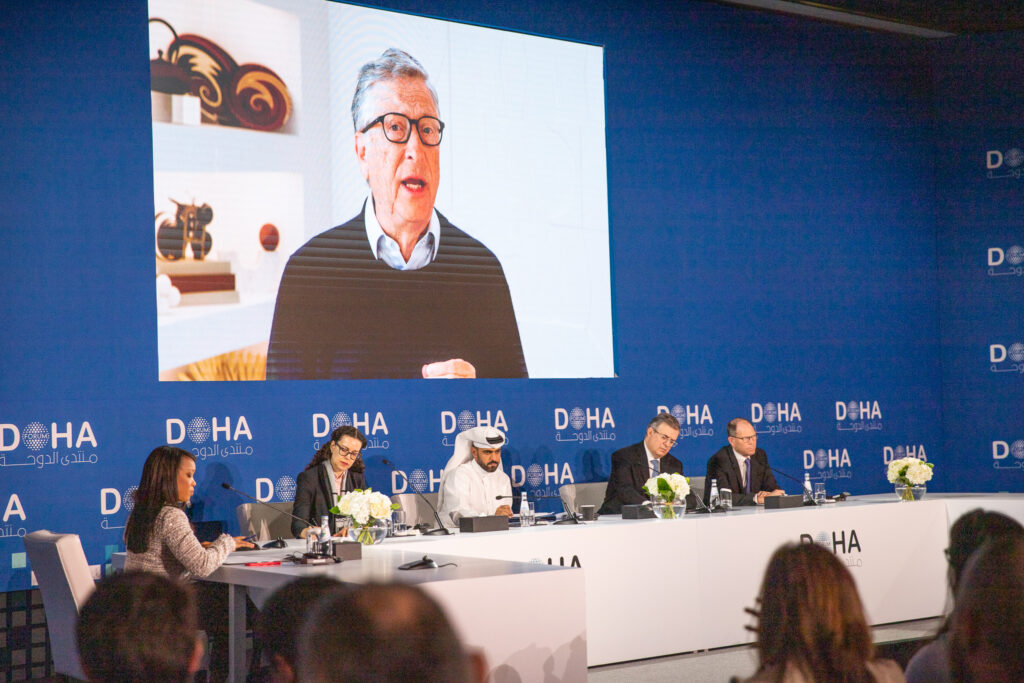Qatar Fund for Development and Bill & Melinda Gates Foundation Jointly Pledge up to $200 Million in New Partnership Supporting Smallholder Farmers. DOHA Qatar Fund for Development (QFFD) and Bill & Melinda Gates Foundation, announced today, at the 2022 Doha Forum, a new strategic partnership called Nanmo, or “growth together” in Arabic.
Nanmo invests in climate-adaptive agriculture tools and technologies to build resilient food systems and markets that provide nutrition, income, and economic opportunities to small-scale producers and their communities.
Qatar Fund for Development and the Bill & Melinda Gates foundation jointly pledged up to $200 million towards agriculture, climate resilience, and economic development projects to support smallholder farmers in drylands on the African continent who are bearing the brunt of the effects of climate change. The partnership will aim to strengthen economies throughout the Global South via four key areas:
- Equity as a primary driver of inclusive growth
- Enterprise as a means of job creation and poverty alleviation
- Agriculture as a primary source of food, jobs, and income in Sub-Saharan Africa
- Provision of access to technologies, financial tools, and emerging best practices as a driver of productivity, nutrition, and climate adaptation
The partnership will also seek to ensure women small-scale producers positively contribute to and benefit from decisions about how their communities grow food and create jobs.

This strategic partnership was announced by HE Mr. Bill Gates and HE Mr. Khalifa Al-Kuwari, Director General of Qatar Fund for development in the presence of The CEO of the Bill & Melinda Gate Foundation Mr. Mark Suzman during a panel on the side-line of Doha form 2022, Addressing the Effects of Climate Change Today: Adaptation Policies for a Climate-Resilient Future.
“Smallholder farmers in Africa are contributing the least to climate change but already suffering the most from it,” Gates said. “With QFFD we’re trying to change that equation. By investing in resilience and security for farmers, we hope to help millions of people avoid the hunger and extreme poverty that climate change brings.”
This strategic partnership with QFFD will support climate-adaptive tools, practices, policies, and markets as sustainable drivers of resilient food systems that provide nutrition, income, and economic opportunities to small-scale producers and their communities. This will also include systems-level research and country-level implementation to adapt to the local environments they serve.
One of the first projects funded by Nanmo will focus on improving the livelihoods of low-income women farmers in several African countries, working with the World Poultry Foundation to provide them with improved breeds of chicken for egg and meat production.

H.E Mr. Khalifa Al-Kuwari said:” We are thrilled to be announcing a new initiative in collaboration with our strategic partner The Bill and Malinda Gates Foundation (BMGF) titled Nanmo or “growing together” in Arabic, which aims at ensuring that sustainable development goals are met everywhere.”
HE added: “We have high hope that these valuable partnerships will expand our efforts to improve the lives of vulnerable communities, ensuring their economic security against the backdrop of this ever-evolving planet.”
In addition, the partnership will fund projects with a clear path to impact across multiple UN Sustainable Development Goals (SDGs), including poverty alleviation, agricultural transformation, nutrition, and women’s and youth economic empowerment. One of the first projects under Nanmo will focus on improving the livelihoods of low-income women farmers in multiple African countries.
The Gates Foundation has spent over $5 billion since 2009 in total commitments to agricultural development to support the needs of smallholder farmers in sub-Saharan Africa and South Asia. Building stronger food systems for smallholder farmers is urgently required to avert more serious hunger crises in dryland regions. This will help boost the economies of the region and improve the ability to which people are able to respond and adapt to climate change.